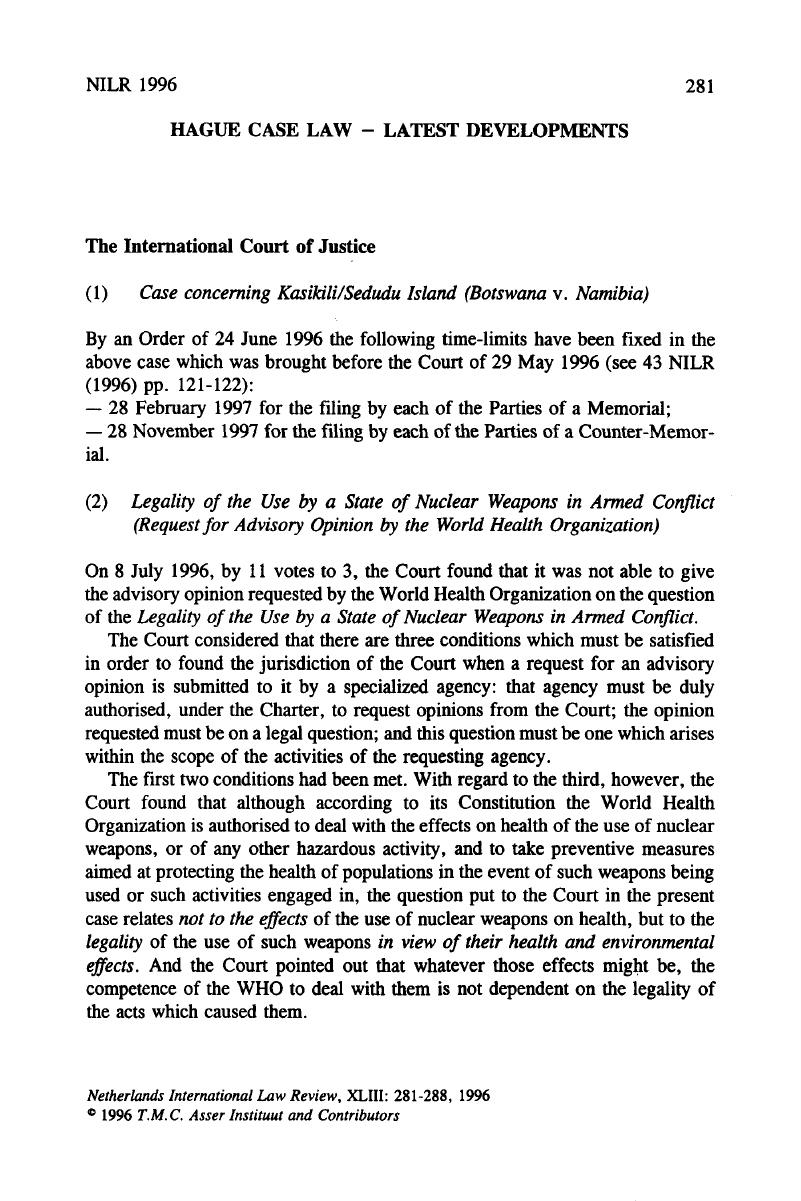No CrossRef data available.
Article contents
Hague Case Law – Latest Developments
Published online by Cambridge University Press: 21 May 2009
Abstract

- Type
- Review Article
- Information
- Copyright
- Copyright © T.M.C. Asser Press 1996
References
1 Very few prosecutions have ever been undertaken at an international level for sexual assaults committed during the course of armed conflict. At the Nuremberg Trials, rape was not prosecuted as a war crime under customary international law, nor did the Charter of the International Military Tribunal contain any reference to rape. The Tokyo trials did find some Japanese military and civilian officials guilty of war crimes, including rape, in that they had failed to prevent the abuse, mistreatment, torture, rape, killing and other atrocities committed by their subordinates. Only Control Council Law No. 10 which governed proceedings against less senior Axis war criminals, who were tried in Germany by the four Allied powers, explicity enumerated rape as a crime against humanity. It was not until the Fourth Geneva Convention of 1949 (Art. 27 para. 2) and Additional Protocols I and II (Arts. 76 and 4) that more explicit legal protection was given against rape and sexual assaults.
The express inclusion of rape as a crime against humanity in Art. 5(g) of the Tribunal Statute and of sexual assault in Rule 96 of its Rules of Procedure may be viewed as a watershed in the history of international humanitarian law.
Although rape is enumerated specifically as a crime against humanity in the Statute of the Tribunal, sexual assaults may also be prosecuted as such under Arts. 2–5 if they are part of a systematic attack. If rape and sexual assaults are committed with the intent to destroy, in whole or in part, a national, ethnic, racial or religious group, these sexual assaults might contribute to genocide. They may also be prosecuted as breaches of the Geneva Conventions and as war crimes.


